Technology and Visual Art Expo 2019: My Monster
When we talk about the creative arts we often start with its intrinsic value: how arts and culture can illuminate our inner lives and enrich our emotional world. However the arts do far more than this. The extraordinary scope of the wonderful and monstrous exhibition in the James Nestor Auditorium does many things; it showcases talent, displays hard won skills, offers us space for contemplation, makes us laugh and cry, but above all it is an amazing testament to the brilliant teachers and raw talent of our students.
The foyer of the building foregrounds busts, ceramics and prints and ink drawings. The raw energy of the homage to Frankenstein collection of hybrid clay creatures from Year 11 students is juxtaposed with delicate prints on the wall across the space. Here Annaliese Iliffe-Turnerās delicate exploration of the fragility of life gives way to the more robust ceramic forms from Ellen Ziatas, Craig Sanctus and Jess Brooker. Two of these powerful pieces are displayed on a stunning piece of furniture, an early indication of the diverse nature of this exhibition. At the end of the display is Hayden Tarziaās fired clay bust. The contrapposto figure twists its elegantly whiskered and glazed muzzle away, luring us closer.
On the end wall a collection of delicate ink sketches offers the viewer a quiet space for contemplation. These little works really pack a punch. The simplicity of the images, minimal palette and one-point perspective, result in sophisticated works that link a dreamy Japanese painting with a Royal Copenhagen landscape. Across the space Tom Staffordās tonal representation of a resting cat introduces more wild and furry ones.
Around the corner a series of strong paintings confront us. The portraits all demonstrate superb skills, but Joseph Damianoās work is astounding. This painting of a simple table, hooded figure and mobile, explores ideas about family, absence, loss and grief, the central role of the dinner table in many cultures, while alluding to the miracle of the loaves and fishes as well as the last supper. This simple composition speaks of so many things. It also calls to question the role of digital devices in social space. Here the device serves to isolate as much as it might connect. Such a sophisticated work is rarely seen in a school context.
A celebration of the monstrous is explored dramatically throughout the show. Studentsā work in media ranging from ceramics, glass to painting, printmaking and photographs of stunning grotesque cakes as well as drawing in wire is amazing. Two figures in masks in Siobhan Stevensā work face the viewer enigmatically. They āprepare a face to meet the facesā, carefully hiding their ātruthā. Madeline Toth gently plays with this idea in her painterly homage to oni masks. Georgia Menezesā painting of meditation almost slips into the sublime, but not before the work makes you laugh.
A wall of glazed acrylic on wood circles present us with a zoo of beastly faces. In Adelbert Tjoengās elegant work a dangerous tiger lurks in his corner seat waiting to ensnare the passer-by. Close by bright designs sail across the wall on skateboards. A wolf or dingo howls at the moon on Georgia Waddyās board. The skateboards also feature in a bright series of works on paper. Towards the back of the space Jordie Preeceās hyenas prowl across a surreal landscape above a display of translucent glassworks. A collection of delicate printworks from Years 7 to 12 outline life in various forms and Madelineās rabbit pops up again.
The Year 10 studentsā drawings have their own corridor. Here the slippage between human, animal and monster is played out in full. From cricket to bovine creatures, the works explore aspects of beastly and human life. In Christian Blagaichās drawing we see a complex reimagining of his peers as they work in a pack around a table. Nearby Sara Poiās eerie work, calling to mind Max Ernstās A Week of Goodness, really disturbs. Seated in an exhibition space the two figures represent the way people often feel in a formal gallery space ā alienated. The complexity of ideas and media is almost overwhelming.
However, there is much more. There is a space with an explosive collection of pop art works, more pottery figures and some stunning design work. Here are tables, chairs, digital docks, fire pits, cutting boards, boxes, planters and some interesting silk screen prints. In Ella Waddyās work a futuristic home floats across the paper and in Cameron Jayās work the building melts into a study of perspective.
A giant paper clip and space age Viking shield invite us to explore even further. Textile design, metal work and prints coexist with large scale delicate wire sculptures. Spotlit and suspended from the ceiling these kinetic sculptures float towards the viewer like grungy mobiles ā Alexander Calder would be delighted. Max De-Vriesā futuristic mechanical werewolves out of the frame and off the wall. His large startling print sits comfortably alongside Sisi Ingenereās very cool work.
The work in this show is truly something to celebrate. Realistically it is not possible to write about all the pieces. Each time the space is visited another work catches the eye. Sadly only the very few can be dealt with here. Congratulations to the artists and their inspirational teachers.
Dr Annette Pederson












